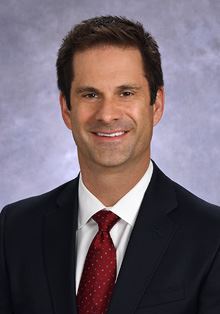271-280 of 1691 Results Found
Responsive Neurostimulation (RNS)
If your child has tried two anti-seizure medications, and is still having seizures, they may have drug-resistant epilepsy. According to the Institute of Medicine, about 800,000 Americans experience seizures despite taking anti-seizure medications. In fact, after trying two
Condition
Whooping Cough (Pertussis) in Adults What is whooping cough (pertussis)? Whooping cough (pertussis) is a very contagious respiratory illness. It mainly affects babies and young children, but adults can also get it. Whooping cough caused thousands of deaths in the 1930s and 1940s
Condition
Gastrointestinal Problems What might gastrointestinal problems mean in a newborn? A newborn's ability to eat and digest food is essential to growth and development. Most babies are able to absorb nutrients and have normal bowel movements after being fed. Gastrointestinal problems
Center for Pediatric Orthopedics Research
Highlighted by Becker’s Hospital Review for our excellent program, the Herbert J. Louis Center for Pediatric Orthopedics at Phoenix Children’s provides individualized pediatric orthopedic care for children with musculoskeletal injuries, diseases or conditions. Our team conducts
Overview
Mission The Program’s mission is to provide excellence in pediatric psychology training to graduate students, interns, and postdoctoral residents-fellows. Values Integrity – to exhibit high standards in ethical and professional behavior in the practice of psychology. Dignity – to
Condition
Neuroblastoma What is neuroblastoma in children? Neuroblastoma is cancer that starts when immature nerve cells in the nervous system grow out of control. These cells are called neuroblasts. Over time, the out-of-control cells form a tumor. Neuroblastoma is the most common solid
Article
Pediatrician vs. Urgent Care vs. Emergency Department
Many children who get sick or suffer a minor injury will recover with home care, but some may need medical attention. What should you do if your child is sick, and how do you know if it’s time to call their pediatrician or go to the urgent care or emergency department? Read on

Doctor
Christopher L. Lindblade, MD
Medical Director, Fetal Cardiology Program; Program Director, Fourth Year Advanced Noninvasive Cardiac Imaging Fellowship
Specialties

Condition
Type 1 Diabetes Mellitus in Children What is type 1 diabetes in children? Diabetes is a condition in which the body can't make enough insulin, or can't use insulin normally. Type 1 diabetes is an autoimmune disorder. The body's immune system damages the cells in the pancreas that
Programs & Services
Early treatment is crucial for better outcomes in progressive neuromuscular disorders. With the establishment of Arizona's newborn screening for Spinal Muscular Atrophy (SMA), this initiative has enabled Phoenix Children’s to provide same-day genetic notification and next-day
